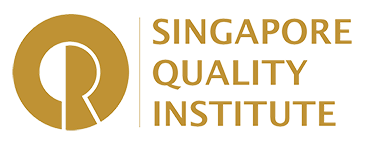MEASUREMENT SYSTEM ASSESSMENT
Introduction A capable measurement system will bring about an effective and efficient implementation of any process control program and improvement initiatives. The methodology adopted for MSA is referenced to AIAG-MSA and AS13003. Objectives This course will enable the participants to: Understand the fundamental principle of measurement system and its effect and impact on the quality…
Poka-Yoke (Mistake Proofing)
Introduction Poka-Yoke, or mistake-proofing, is a critical concept in quality management aimed at preventing errors before they occur or reaching the customer. This training program equips participants with the knowledge and skills to implement Poka-Yoke techniques effectively within their organizations, ultimately enhancing product quality, reducing defects, and increasing customer satisfaction. Objectives Understand the principles and…
QC TOOLS AND TECHNIQUES
Introduction Manufacturers can choose from a variety of tools to improve their quality processes. The trick is to know which tools to use for each situation. Once the basic problem-solving or quality improvement process is identified, the appropriate tools can be used by any professional to ease the quality improvement process, such as: flowcharts, check…
Risk Management – Embracing Disruptive Innovation in Technology
Introduction: The course aims to empower participants with the essential knowledge and skills required to effectively manage risks associated with disruptive technological innovations. It encompasses comprehensive training in systematic risk identification, with the overarching goal of preparing participants for organizational risk management. Additionally, it delves into the critical steps necessary to minimize, mitigate, or manage…
Root Cause Analysis (RCA)
Introduction In today’s fast-paced business environment, recurring problems can cause significant disruptions, increase costs, and impact quality. Root Cause Analysis (RCA) is a structured approach that helps organizations identify the underlying causes of problems rather than merely addressing symptoms. This comprehensive 2-day RCA training course equips participants with practical knowledge and skills to systematically analyze…
SAMPLING PLAN METHODOLOGY
Introduction A simple method for choosing a sample size from a population is through what quality engineers refer to as the square root of N plus one sampling rule. This rule is apparently not statistically motivated nor is it mentioned by sampling theorists and practitioners. As a matter of fact, Sampling plans are used to…
STACK TOLERANCE FOR DESIGN EVALUATION
Introduction: This course is designed for experienced practitioners with deep knowledge in GD&T and want to deepen their skills in the specialized area of tolerance stack. Objectives Manufacturing organisation deploys a systematic flow of information to translate customer requirements into the Product Realization. Learners will be able to further advance their skills, knowledge and application of…
STATISTICAL PROCESS CONTROL
Introduction This training program provides participants with the necessary tools and knowledge to effectively implement Statistical Process Control (SPC) techniques in their organizations. SPC is a powerful method for monitoring, controlling, and improving processes to ensure consistency and quality in products and services. Objectives Understand the fundamental concepts of SPC and its importance in process…
VALUE STREAM MAPPING
Introduction Many organisations recognise the importance of becoming lean. But, they are doing lean without necessarily become lean. Such organisations sporadically implement improvements without linking their efforts to an overarching strategy. Value Stream Mapping enable an organisation to understand visualises current state and through the application of lean tools, realise their futuristic state with the…









